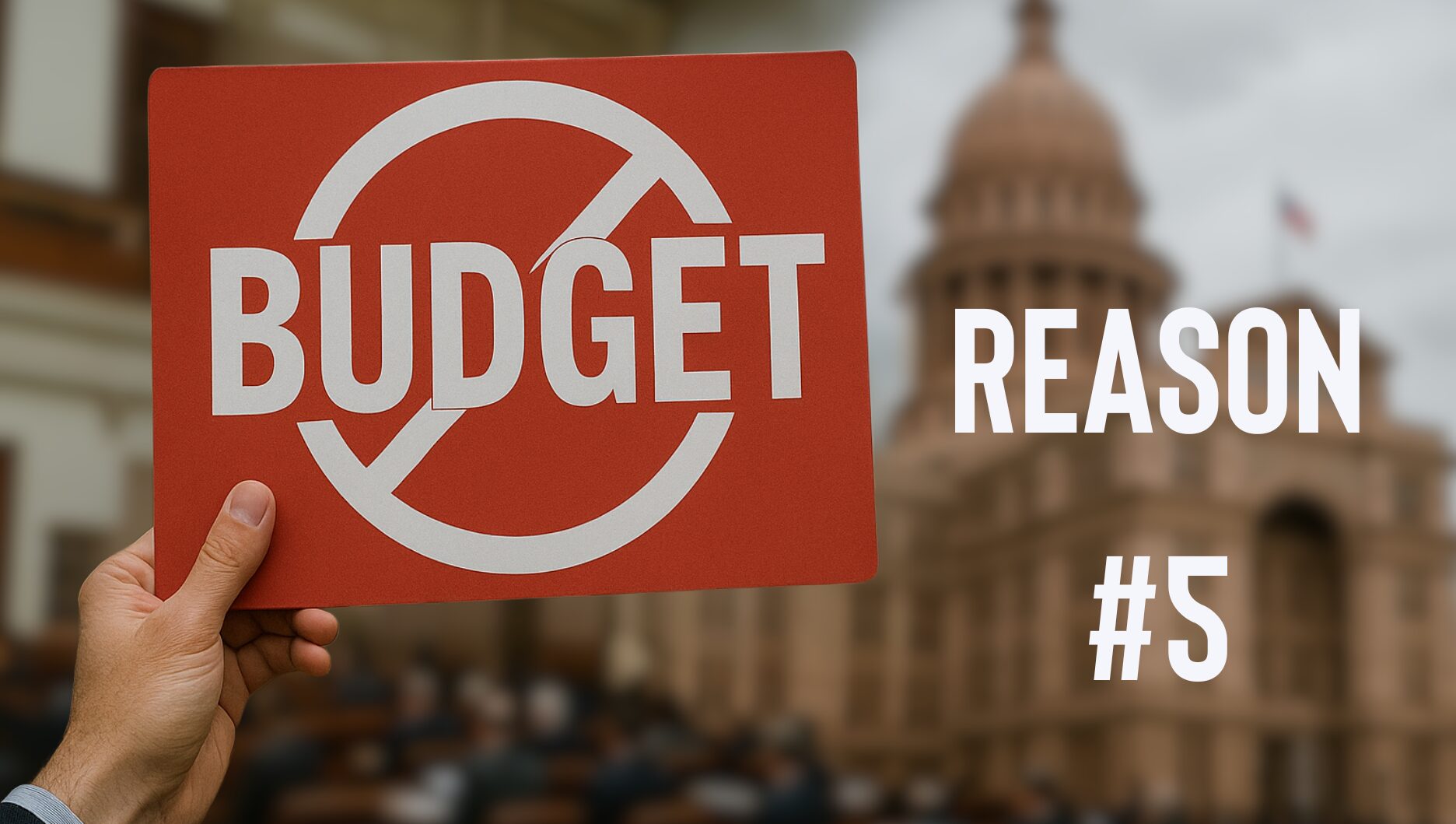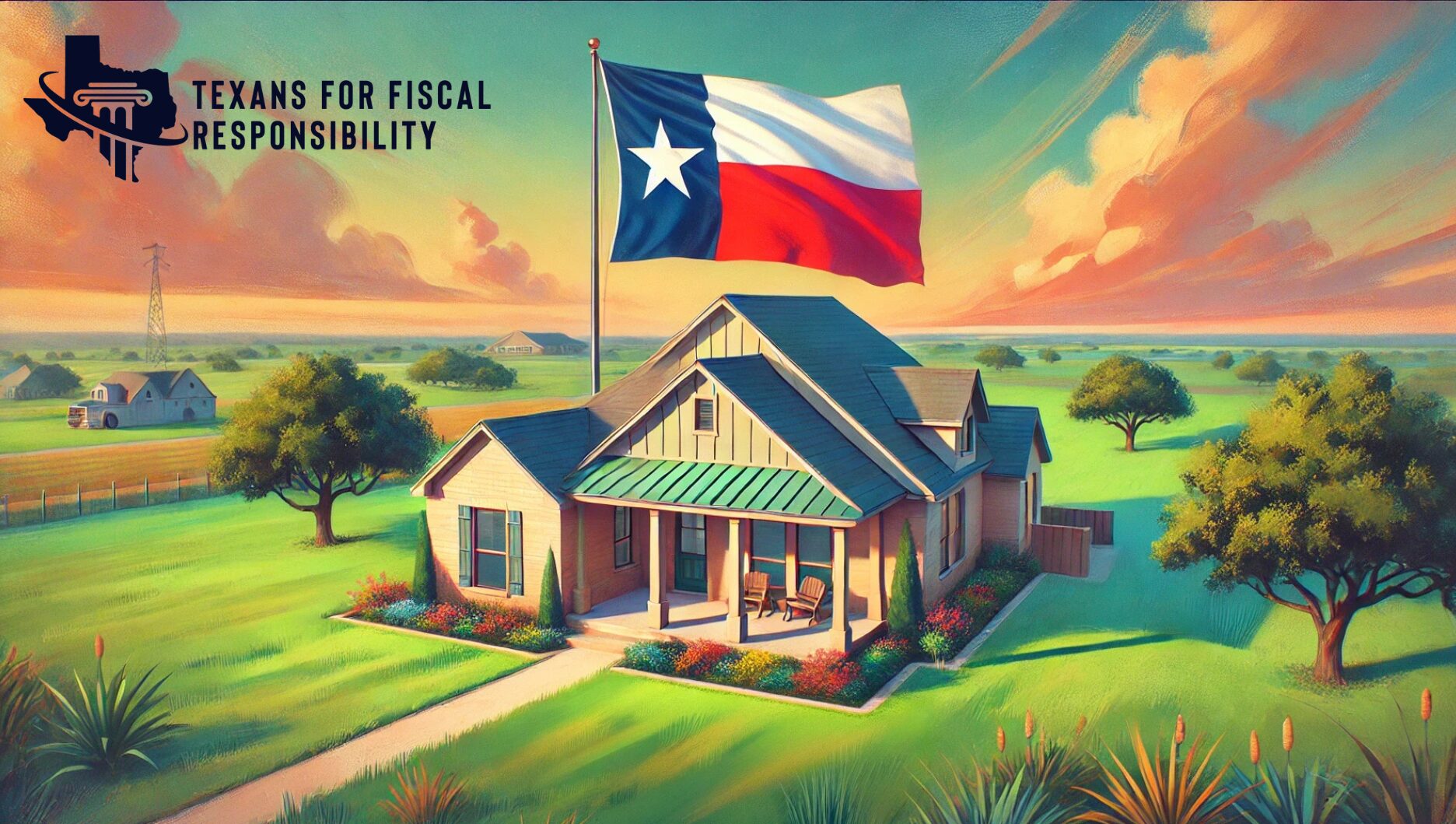
The Texas budget is put together using smoke and mirrors. Everything about the appropriations process is designed to hide the total cost and true size of the state government from Texas taxpayers.
For instance, the Legislative Budget Board shows that total Texas state all-funds spending for the 2026-27 biennium will be $337.4 billion. However, three adjustments based on calculations using historical trends suggest that final state-controlled spending for the biennium will instead be closer to $608 billion.
| Figure 1. Total State-Controlled Spending2026-27 | |
| Senate Bill 1 | $337,401,500,000 |
| Appropriations Adjustment | $30,332,394,850 |
| Actual Spending Adjustment | $119,513,515,826 |
| Education Spending Adjustment | $120,491,903,000 |
| Total | $607,739,313,676 |
Initial Appropriations vs. Final Appropriations
Every session the Texas Legislature passes an appropriations bill. And every session the Texas Legislative Budget Board reports how much money is appropriated in the bill for the upcoming fiscal biennium. Then two years later the next session rolls around and the LBB reports that the appropriation for that biennium is actually more than was appropriated in the previous session. The difference since 2012 has been 8.99%.
| Figure 2. Initial Appropriations vs. Final Appropriations | ||||
| Biennium | Initial | Final | Difference | % |
| 2012-13 | $167,984,200,000 | $185,254,700,000 | $17,270,500,000 | 10.28% |
| 2014-15 | $200,421,200,000 | $203,300,500,000 | $2,879,300,000 | 1.44% |
| 2016-17 | $209,103,000,000 | $216,398,400,000 | $7,295,400,000 | 3.49% |
| 2018-19 | $216,608,264,485 | $235,222,275,833 | $18,614,011,348 | 8.59% |
| 2020-21 | $248,313,834,070 | $270,340,500,000 | $22,026,665,930 | 8.87% |
| 2022-23 | $264,804,700,000 | $313,349,600,000 | $48,544,900,000 | 18.33% |
| 2024-25 | $321,708,800,000 | $360,095,345,113 | $38,386,545,113 | 11.93% |
| Average | $22,145,331,770 | 8.99% | ||
Final Appropriations vs. Actual Spending
Texas Comptroller Glenn Hegar recently reported that the state of Texas spent $212 billion in FY 2024, an increase of 6.6% over the previous year. The comptroller’s number is far higher than the number from the Legislative Budget Board, which shows spending is closer to $172 billion for the year. The reason for this is that tens of billions of dollars of state spending every biennium are not included in the LBB’s numbers. Since 2012, the actual spending for the state has exceeded the LBB’s numbers on average by 32.5%, about $78 billion per biennium.
| Figure 3. Legislative Appropriations vs. Actual Spending | ||||
| Biennium | Appropriations | Actual Spending | Difference | % |
| 2012-13 | $185,254,700,000 | $241,974,151,000 | $56,719,451,000 | 30.62% |
| 2014-15 | $203,300,500,000 | $260,750,406,000 | $57,449,906,000 | 28.26% |
| 2016-17 | $216,398,400,000 | $284,309,764,000 | $67,911,364,000 | 31.38% |
| 2018-19 | $235,222,275,833 | $292,106,986,000 | $56,884,710,167 | 24.18% |
| 2020-21 | $270,340,500,000 | $413,554,629,000 | $143,214,129,000 | 52.98% |
| 2022-23 | $313,349,600,000 | $399,841,717,000 | $86,492,117,000 | 27.60% |
| Average | $78,111,946,195 | 32.50% | ||
State Education Spending vs. Total Education Spending
The largest spending item in the Texas budget is public education, projected to cost about $101 billion in the 2026-27 biennium. But that amount does not tell the complete story. Total spending on government schools and the education bureaucracy is much higher when including state and state-controlled local spending. While not all property tax revenue flows through the state, it is accounted for in the state education funding formulas. Additionally, the state controls how much property tax revenue school districts can raise (although they do a poor job of it). Schools get to set their own budgets, but the state of Texas controls the total amount of education spending. On average, since 2012, the difference between state and total education spending is 119% per biennium, or about $78 billion.
| Figure 4. State Education Spending vs. Total Education Spending | ||||
| Biennium | State Spending | Total Spending | Difference | % |
| 2012-13 | $52,400,000,000 | $105,905,646,126 | $53,505,646,126 | 102.11% |
| 2014-15 | $56,171,900,000 | $116,720,913,424 | $60,549,013,424 | 107.79% |
| 2016-17 | $58,895,800,000 | $131,536,787,507 | $72,640,987,507 | 123.34% |
| 2018-19 | $61,315,500,000 | $140,246,058,252 | $78,930,558,252 | 128.73% |
| 2020-21 | $69,487,100,000 | $156,314,265,765 | $86,827,165,765 | 124.95% |
| 2022-23 | $72,027,700,000 | $177,268,212,994 | $105,240,512,994 | 146.11% |
| 2024-25 | $89,141,200,000 | $178,750,989,052 | $89,609,789,052 | 100.53% |
| Average | $78,186,239,017 | 119.08% | ||
Conclusion
After making these adjustments, the total projected state-controlled spending for 2026-27 is $607.7 billion, an average of almost $304 billion annually, 80% more than the Legislature’s official budget documents. Texans deserve more accurate budget reports. And a smaller government.
A more detailed explanation of these adjustments may be found here.
Texans for Fiscal Responsibility relies on the support of private donors across the Lone Star State in order to promote fiscal responsibility and pro-taxpayer government in Texas. Please consider supporting our efforts! Thank you!
Get The Fiscal Note, our free weekly roll-up on all the current events that could impact your wallet. Subscribe today!




